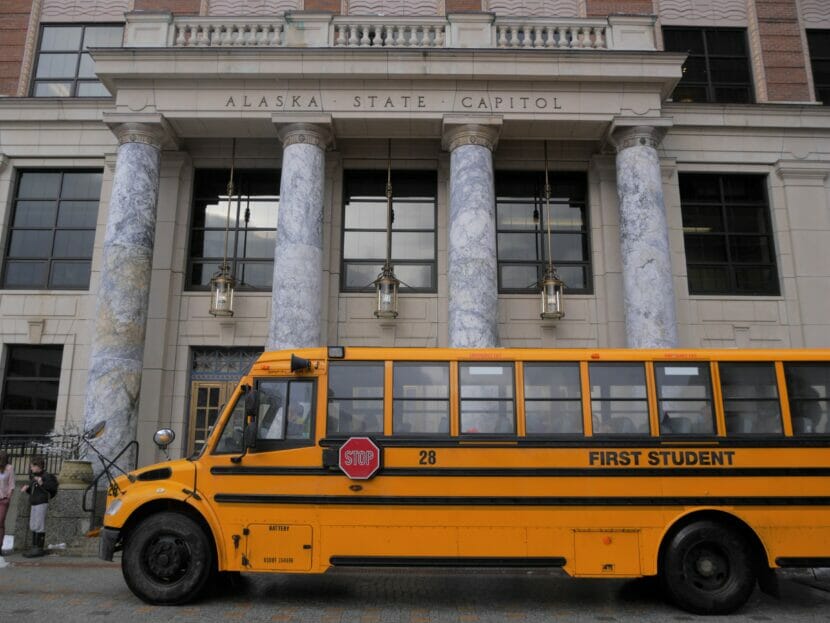
The Alaska Senate has passed a bill that would increase how much the state funds public schools.
“We’ve had huge inflation spikes, we’ve had school closings across the state being proposed, we’ve had thousands of teacher positions and other school administrator positions unfilled,” Sen. Bill Wielechowski, D-Anchorage, told reporters late Thursday afternoon. “There’s still more work to do, but this is a huge day.”
The bill would increase the base student allocation by $680 starting in July. The amount of per student funding hasn’t increased since 2017, and many teachers and administrators say the $30 increase planned for next year isn’t enough.
Earlier this week, the Senate Finance Committee added two amendments to the bill, one that would increase transportation funding and another that would increase room and board stipends for residential students.
Sen. Shelley Hughes, R-Palmer, introduced several amendments Thursday, though none passed. One would have withheld some of the new funding for underperforming schools unless they improved. Another would have given parents and teachers money if their students did well on certain tests.
Two other amendments addressed school policies for LGBTQ+ students. One would have banned transgender students from single-gender sports teams that match their gender identity. The other would have required written permission from parents before students could take sex education classes, change their names, use different pronouns at school or join clubs related to gender and sexuality – essentially mirroring Gov. Mike Dunleavy’s “parental rights” bill. Both of those amendments were ruled not germane, meaning they were too unrelated to the main bill.
Hughes and Sen. Robert Myers, R-North Pole, introduced amendments that would require 70% of the bill’s funding increase to go to classroom instruction and teacher salaries.
“Ensuring that we have high-quality teachers is one of the best ways to ensure that we’re spending money that actually solves our performance issues, rather than just throwing money at the problem,” Myers said.
Both amendments failed. Sen. Bert Stedman, R-Sitka, said addressing inflation more broadly should be the starting point.
“Regardless if you agree that schools are near perfect or totally dysfunctional, we’ve got to address the funding level,” he said. “This is a stopgap measure.”
Sen. Löki Tobin, D-Anchorage, said districts needed to have the power to spend the money how they see fit.
“Our schools have fixed costs. They still have to heat the classrooms, they still need to pay for the internet, they need to make sure the lights stay on,” she said. “And as their purchasing power has been eroded due to high inflation, they are experiencing this struggle where they have to balance retaining their teachers or trying to make sure their buildings stay habitable.”
The bill passed in a 16-3 vote, with Hughes, Myers and Sen. David Wilson, R-Anchorage, voting no.
This story has been corrected to reflect that one of the amendments would have reduced the funding boost for underperforming schools unless scores improved.
